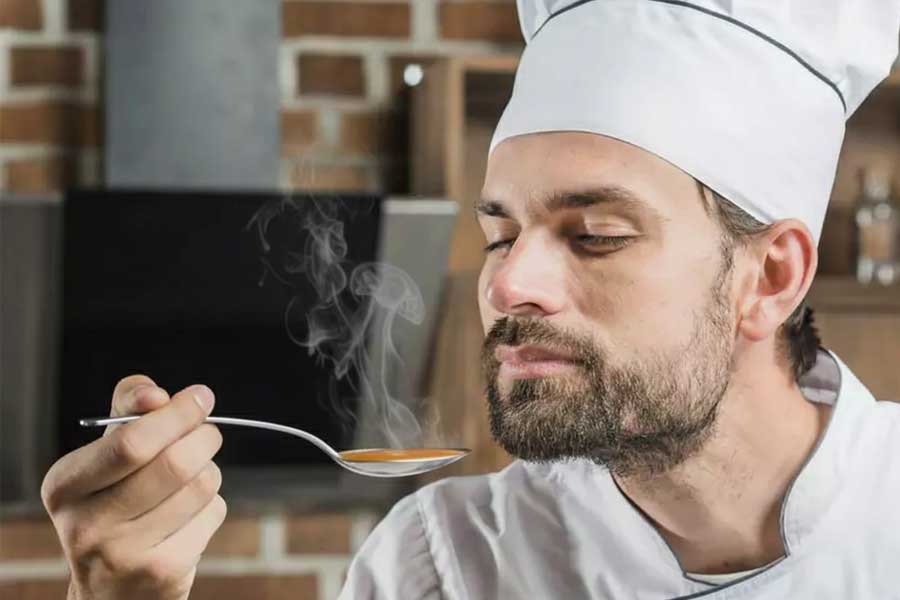
Every serious cook knows that flavor rarely appears by accident. Instead, flavor grows from attention—steady hands, correct timing, and tools that let you taste and refine while you are preparing a meal. Good judgment matters, but so do the tools you use. For this reason, cooks who care about the flavors they produce use precision tools while at the stove. These aren’t decorative extras; they are practical instruments that make results repeatable and reliable.
Tools for Tasting prove their worth in several crucial moments. Below are some of the everyday tasks where these precision tools shine:
Little tasks, yes, but they’re precisely where dishes can go right or wrong. Little tasks with big tools make for great meals.
Precision tools are not hidden away. Instead, when you reach for them, you trust them. They’re compact, and yet handsome enough to live upright in a utensil crock. Each dish prepared with the involvement of precision tools feels more deliberate, more professional.
Then there’s the joy factor. When you taste a sauce mid-seasoning and it sings, you feel in command. Precision tools let you enjoy those moments—moments that separate everyday preparations from inspired cooking.

Anyone who cooks regularly knows small errors add up fast. A spoon that’s too shallow won’t show you the true texture. A clunky fork tears meat instead of offering a clean look at the center. Get the wrong impression, and you’ll over-salt, over-cook, or second-guess yourself. Precision tools remove that uncertainty. Thus, they give you an honest, controlled sample so you can trust what you’re tasting.
Tools for Tasting suit cooks who want to sustain a steady preparation cadence. Our Scoopasure spoon lifts a neat mouthful of broth or sauce without stealing half the pot. The Kurfork, a smart blend of knife and fork, slides off a tiny slice of meat so you can check doneness without shredding the whole piece. There’s even a pasta tool, Noodula, that lets you grab one strand, twirl, and test for al dente without fishing blindly and inheriting a steam burn when using a dinner fork.
Every piece in the line is crafted from polished stainless steel (304 grade). That means no rust, no weird metallic flavor, and no shame in tossing it into the dishwasher after a long night. Edges are smoothed except where you actually need an edge for the business end of meal preparation. Moreover, they’re sleek enough to keep out on the counter or use as serving pieces instead of being buried in a drawer.
Here are some more reasons why serious cooks prefer precision tools from the house of Tools For Tasting:
Taste once, decide, move on. That’s the rhythm precision tools from Tools For Tasting encourage. Instead of scooping sloppy ladles of stew, Scoopasure allows you to lift a perfect bite and know exactly where your seasoning stands. Instead of stabbing around with a table fork, a kurfork lets you take one clean sliver of chicken and see the center.
For pasta lovers, Noodula excels. You scoop, twirl, and test for al dente perfection. It lifts noodles from boiling water without splashes and without ruining your flow. Ultimately, these tools help you cook faster, safer, and more confidently, especially on weeknights when dinner already feels like a race.
Long, balanced handles of precision tools by Tools For Tasting let you lean over simmering sauces without sticking your knuckles into the steam. No awkward angles, no splashes. That peace of mind changes the way you cook: you stop hesitating, and you start tasting at the right moment instead of waiting until things cool. Less guessing. Better results.
Use the same spoon or fork every time, and your “taste memory” sharpens. One level Scoopasure sample becomes your standard for sauce thickness. One Kuhfork slice shows you the meat’s progress. Over a few weeks, you stop measuring success in lucky breaks and start cooking on purpose.
Plenty of utensils look fancy in photos but feel flimsy in hand. Tools For Tasting flips that. These are solid, balanced, and meant to be used hard. They’ve handled weeknight chili, slow-braised lamb, and everything in between at a serious cook’s stove. After a rinse or a run through the dishwasher, they shine like they did on day one.
Taste-testing should not require perilous leaning over steam or risking burns. Tools for Tasting addresses that hazard with long, ergonomic handles that let you reach into pots and tall pans while keeping your hand safely back from the heat. These tools are further balanced for frequent use so that the wrist feels less strained and easily fatigued during long prep sessions. These safety and ergonomic features are specific designs cited in the product notes and factoids.
When you use the same calibrated tasting spoon or fork often, you train a useful taste memory. Over time, you know what one spoonful represents in seasoning and texture, and your adjustments become quicker and more confident. Moreover, precision tools reduce guesswork; instead of approximating by feel alone, you use true, repeatable bites that reflect the dish’s actual condition. That repeatability helps recipe testing, teaching, and daily meal prep alike.
Precision tasting improves your sensory judgement. A neat, narrow sample preserves temperature and mouthfeel so you can detect whether a sauce has broken or whether a custard needs a touch more sugar. Additionally, a balanced utensil provides tactile feedback that helps you judge doneness and texture at a glance. Ultimately, better samples lead to better decisions and better food.
Stop guessing. Instead, start knowing. Explore the Scoopasure, Kuhfork, and Noodula offered by Tools for Tasting. Order a single piece or the full set, keep them next to your stove, and let them earn their spot in your daily routine. Taste, decide, and serve with confidence—every single time.